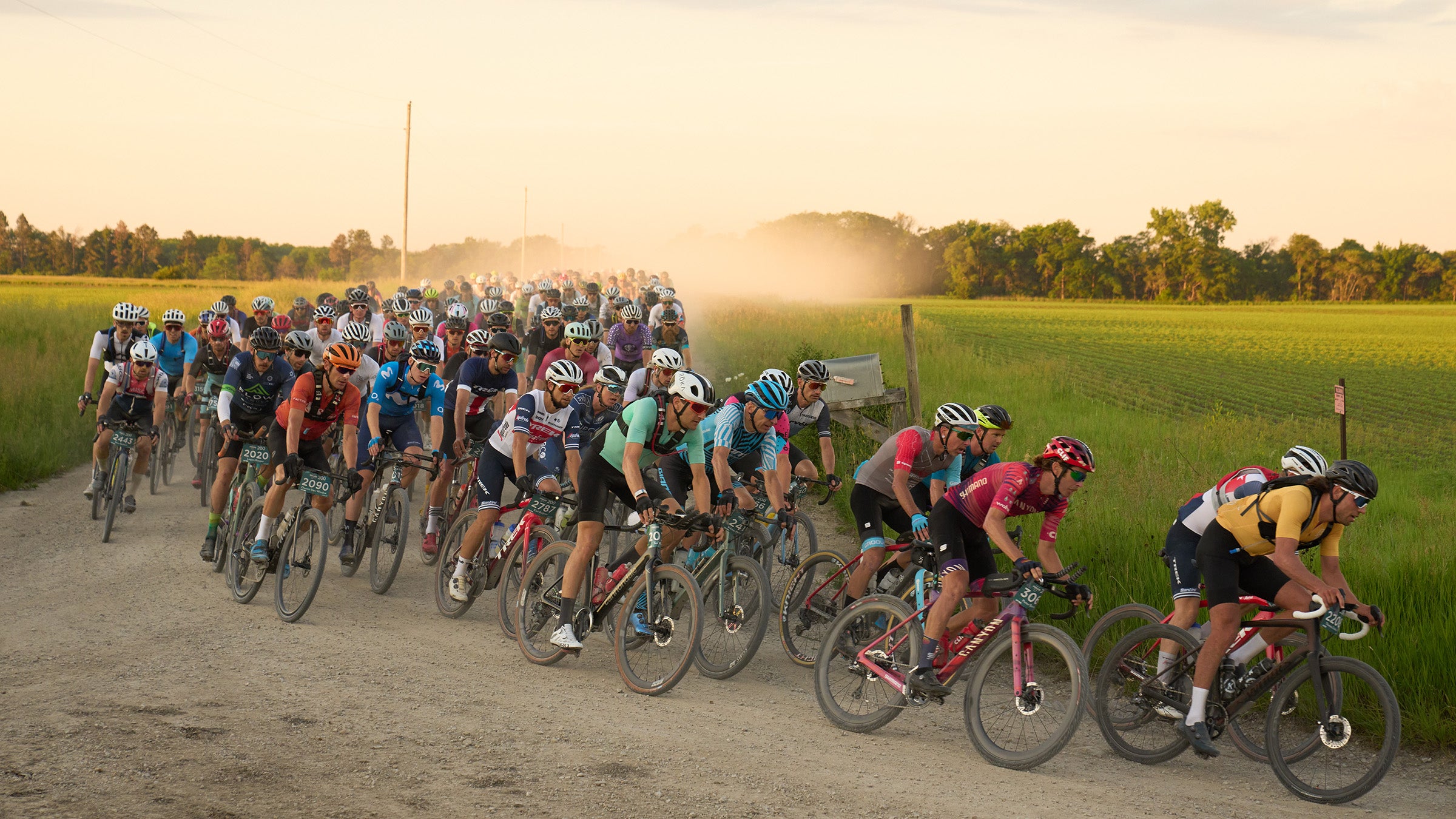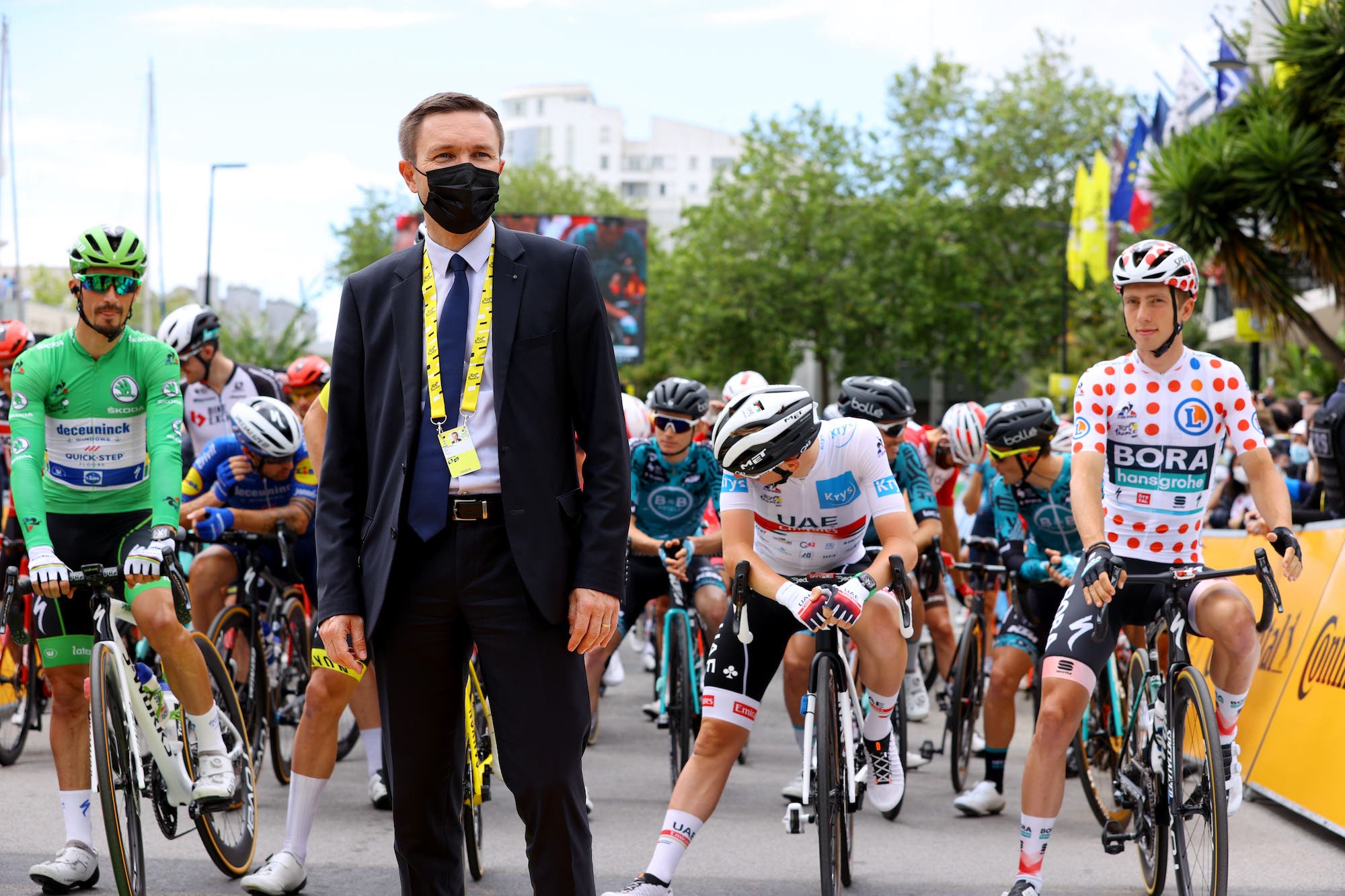Worlds notebook: Behind the UCI's stunning gravel announcement, and four more years for David Lappartient

Unbound Gravel and Strade Bianche don't have much in common. (Photo: Wil Matthews)
MECHELEN, Belgium (VN) — World championships week is halved into two arenas: the first, on the pavement, with a week of rainbow jerseys.
The second? In the backrooms of conference halls, hotel lobbies and WhatsApp messages that pass between the power brokers within the UCI.
For cycling’s “classe politique,” the worlds are about the most important week of the season.
That’s where the final stamp of approval is put on many of the behind-closed-doors decisions that have already been meted out weeks and months in advance.
Proof?
Wednesday’s confirmation that gravel racing is now an official UCI-sanctioned discipline, and it will feature its own racing series and world championships in 2022.
Also read:
- Gravel community reacts to UCI’s announcement
- UCI confirms gravel series and sanctioned world title
- The UCI hasn’t forgotten about gravel
VeloNews has been following this story since at least 2018, when gravel really broke out on the racing scene to capture the attention of the UCI, and we got wind of it Wednesday a few hours before it was official.
When you ask someone within the UCI why they should delve into gravel racing, the answer is simple: the UCI governs all of the cycling family, and when the cycling family grows, the UCI must adjudicate. The UCI, at least from their point of view, provides the guardrails and rulebook to provide the institutional backdrop for racing.
Beyond the press releases and public speeches, however, it’s obvious that the UCI sees a booming niche, and it wants to get its share. And as the governing body of cycling, it thinks it deserves it, and they don’t have to ask anyone for permission. And by creating its own series, it has ownership right from the start.
The UCI’s decision to enter gravel racing was as completely arbitrary as it was expected.
Of course, UCI-laden concepts of rulebooks, doping controls, technical limitations, fees, licensing, insurance, and a sundry of stated boundaries are in complete contrast to what many in gravel racing celebrate about the exploding and boundless freedom of racing on rural gravel roads.
Many fear the free-spirited racing and after-race beer parties will come to an end if the blue-tied UCI commissaires come calling to the gravel roads of Kansas.
Ask anyone within the burgeoning gravel scene — my colleague Ben Delaney did just that overnight on VeloNews — and almost no insiders, organizers or racers had any contact with anyone from the UCI.
Right now, there are few details about how many races there will be in the UCI’s new series, except that the events will be mass participation, similar to what’s happening already. It’s unclear if the UCI will create distinct men’s and women’s races, or impose stricter rules for the pro class, but it’s unlikely the UCI will try to fiddle too much with what is already working very well.
The UCI confirmed there will be a series of races that will lead to qualifying for a UCI-sanctioned world championships. More details will be revealed in the coming weeks and months, but sources tell us that the first UCI-worlds will likely be held in the United States.
Sources also tell us that the COVID-19 pandemic and world shutdown threw up some unexpected roadblocks for the UCI’s gravel plans, and forced everyone to postpone. That the UCI is unveiling everything by 2022 reveals how far along ambitions were.
Unlike mountain biking, which soon became an Olympic sport, this time could be different.
The UCI won’t be able to wield such a heavy stick with gravel racing, because it is highly unlikely gravel will ever become an Olympic medal sport, at least that’s what sources are telling me. With mountain biking, the UCI could say, OK, you can race your pirate-series events, but you won’t be able to race for the gold medal. That’s not going to happen in gravel.
A more accurate comparison might be with the gran fondo concept, which dates back decades in Europe and beyond. These mass-participation rides and races draw hundreds of thousands of riders across the globe, and the UCI has tried to extend its reach into the lucrative niche with mixed results. Without the Olympic monopoly to pull riders and organizers into line, the gran fondo scene continues to flourish without much interference from the international governing body.
Things might work out just fine if the UCI comes in as a new friendly neighbor on the block, and says, hey, our races have these rules, and if you win, there is some prize money! And you might be able to take home a shiny new rainbow jersey at the end of the season.
All that could change if the International Olympic Committee suddenly decrees gravel racing as an Olympic medal sport, but right now, that’s highly unlikely.
It will be interesting to watch how the passionate gravel aficionados will accept the UCI’s entree into the sport. With the UCI, there is inevitably a baggage train of rules and doping controls to follow, some of which might actually be welcome.
There seems to be a huge disconnect between the gravelers of 2021, and the UCI officials that are meeting this week in Flanders to divide the cycling world between them.
The free-wheeling gravel crowd looks on largely with distrust and disdain at the UCI, while the UCI sees green new pastures to till, filled with unruly but untapped riches.
Both have gotten along just fine without the other. Things could get very interesting in the coming months.
Four more years for David Lappartient
If you read the fine print of the UCI’s flood of press releases this week, there’s some real juicy stuff.
Some make the headlines, like the decision to bring the world championships to Rwanda in 2025.
Again, nearly all of these decisions are made behind closed doors. The UCI makes most of its most important decisions via a series of management groups and working panels. Teams and riders have a place at these tables, but the votes are weighted in favor of the UCI.
The UCI schedules its annual congress to coincide with the worlds to schmooze, work the levers of political power, and put the official veneer of legitimacy on its back-room deals.
Political accountability? It’s hard to see where that’s coming from. For years, team managers, riders, and even national governing bodies have grated against the obstinacy of the UCI. The only true accountability comes via the UCI presidential election every four years.
This week, UCI president David Lappartient will receive a second, four-year term as the leader of the governing body without any opposition. No candidates presented themselves before a June deadline, and he will face a perfunctory vote by applause this week to secure another mandate.
The jury is still out on the 48-year-old Lappartient. Some see him too close to ASO and the IOC, cycling’s most important constituents. Others see him as power-hungry, who meddles in everything. Others say he’s helped modernize the federation, and put emphasis on the right things, such as technological fraud, women’s cycling, and anti-doping efforts.
Lappartient doesn’t make bold moves without consensus, and he often builds back-room support before pushing forward with his initiatives.
Wednesday’s mixed relay time trial race is a perfect example of how Lappartient positions the UCI. He ditched the trade team time trial, popular among some of the top WorldTour teams, and slotted in the mixed relay.
Why? It checks a few boxes, including inclusion and gender quality. It’s also another carrot to sell to would-be hosts of the world championships, allowing them to stretch out the competition to two full weekends, like in Flanders 2021, which runs from Sunday to Sunday.
It also puts cycling in pole position if and when the IOC includes mixed team sports in the Olympic Games, which is currently under consideration.
One thing everyone agrees on — he’s a very good politician.
